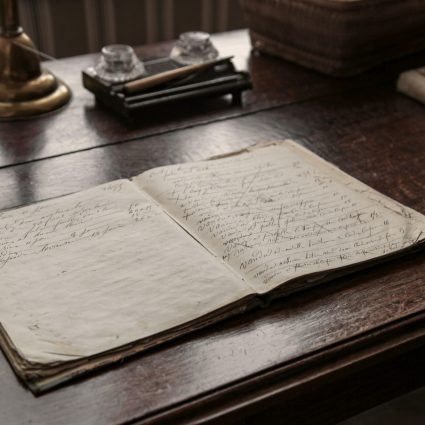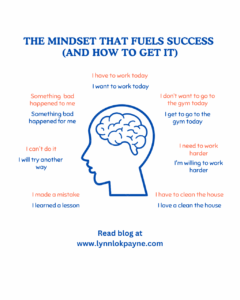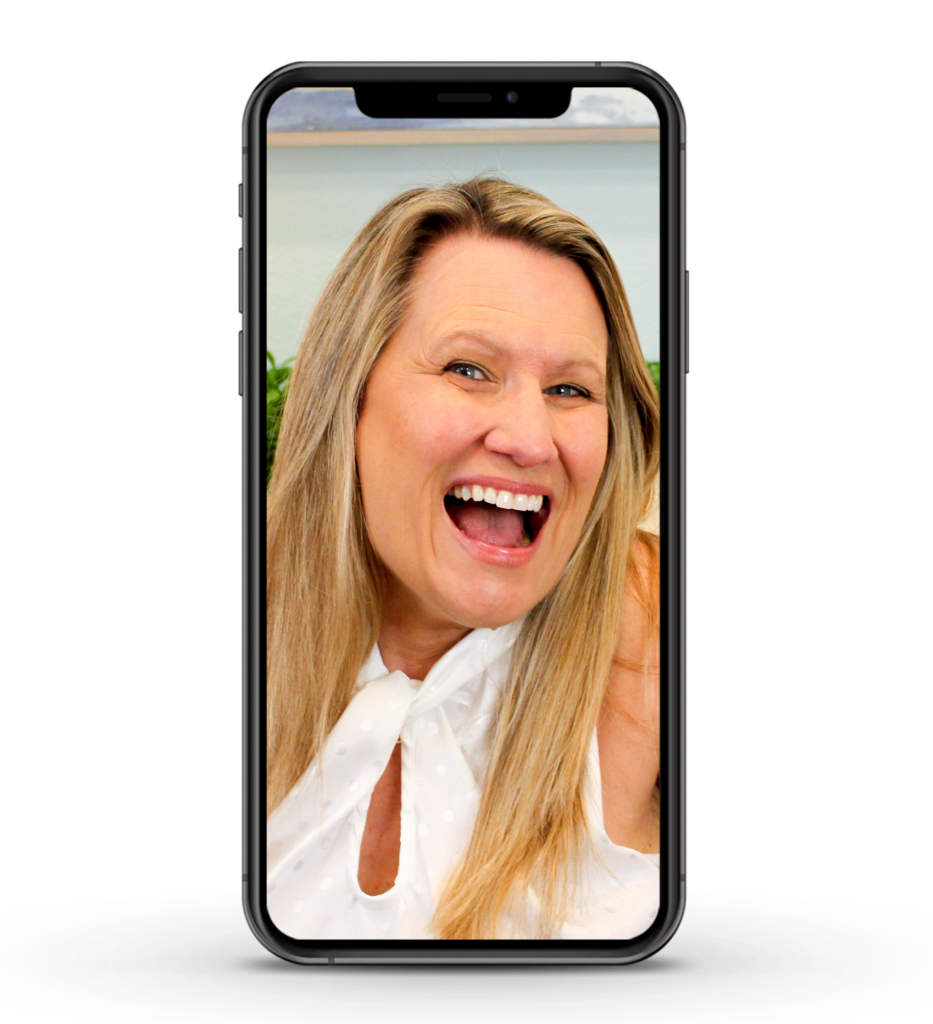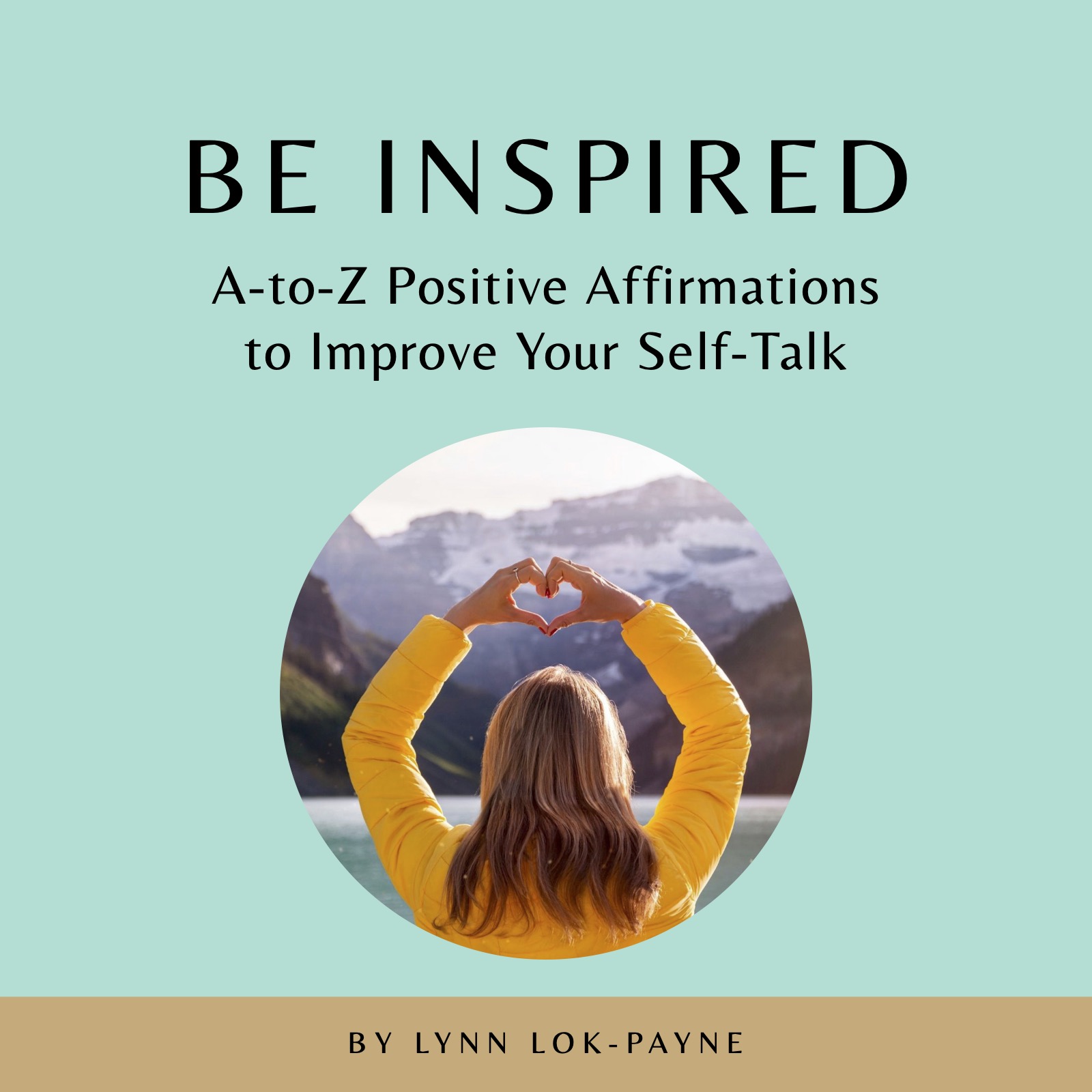
When we focus on crippling stories, we can create negative emotions as if the situation is currently occurring. When this happens, our mind is unconsciously saying, Wake up, Past! It’s time to replay my sad saga. Because without you, I don’t have a story. We have attached ourselves so deeply to these narratives that sometimes we cannot separate the tragic tale from our own identity. We are afraid to let them go, because if we did, who would we be? These events happened to us—they are not us. But by recounting these sad sagas, the past continues to live.
In school, math was not a favorite class, and I felt that my skills in this subject were inferior. I created this narrative and it became a self-fulfilling prophecy. But in college, a statistics class finally made sense because I had a professor who demonstrated how math applied to the outside world. Earning an A in the class allowed me to change my crippling stories. Later I realized I did not need the grade to view myself differently—just a change in thought. I was the only one who had the power to revise my story.
All we are is the result of all we have thought. – Buddha, Indian teacher, philosopher, founder of Buddhism
Crippling Stories
When we compose our own crippling stories focusing on pessimistic outcomes, like life won’t change or I can’t do this, we create our own prophecy. The mind believes what you repeatedly tell it. Many of these fables are fiction and not helpful. If we continue replaying these narratives we start believing them to be true. This can start a negative loop and the downward spiral begins.
Whether the wounds are from self-imposed crippling stories or we believe someone “did us wrong,” holding on to this pain is not healthy. It keeps us from living joyfully in the present. If we leave old narratives behind, we can start to heal. If not, the saga, along with its wounds, will keep appearing until we release it.
When someone is hurtful, they must be suffering because if they felt good about themselves, they would not have the desire to cause others pain. If others have said or done something to make us feel less than, we should remember that it is more about them than it ever is about us.
People cannot make us feel less than, even though sometimes it feels that way. Only we can do this to ourselves by accepting their words or actions as truth. Past hurts are heavy burdens we carry that block us from feeling whole.
Staying Stuck in the Past
An example is someone who was taken advantage of. We all know people who have had bad relationships or unhealthy work situations and they continue to retell these painful, crippling stories for years afterward. They may say, “Someone treated me poorly and they must suffer.” But who really is suffering? It is the person who keeps opening up the wound. Everyone else in the story has moved on. By staying stuck in the past, we create our own prison walls.
We can change our crippling stories by thinking more constructively and this will help to switch our emotions. At first, it may feel as if we are lying to ourselves if we have been repeating negative sagas for some time. This may not be an easy thing to do, but with practice, we can change our negative “go-to” thoughts to more beneficial ones.
Outdated Beliefs
Beliefs are the foundation of the rules, laws, and framework we use to create the world. What we see and hear forms our experiences and then we search for evidence to assess if they are true or false. This is how we internally process what is happening in our external environment. Beliefs are the root of our truth tree from which everything else stems. We create the road map of our reality using these deep-seated principles.
Babies are not born with beliefs, they come from our environment—family, friends, education, or experiences. Many of these are formed in early childhood. What we learn and see as a child is deeply imbedded in us. These core beliefs provide our internal guide to life. If our parents thought there was never enough money, success was not achievable, or love was not attainable, then these scarcity views can become ours as well. But we do have the power to choose new ones.
Our beliefs control our bodies, our minds, and thus our lives. — Dr. Bruce Lipton, stem cell biologist, author, inspirational leader
Examining Beliefs
By examining our beliefs, we find out if they belong to someone else or are ones we chose. The question is, “Are my beliefs still relevant or are they holding me back?” Clinging to the old may prevent accepting new ideas that challenge our opinions, such as when humans thought the earth was the center of our solar system or the world was flat. Eventually, these convictions proved to be untrue.
The thought of adopting a new belief or the fear of someone thinking our opinions are wrong can be frightening. Change may not come easily because our ego wants to keep the status quo. It lives to defend past beliefs because familiarity brings us comfort and security, but this can hinder learning. To believe something different than what we hold true can be unsettling since it pushes us into unknown territory. But the more we experience something, the more we become accustomed to it. We call this the Mere Exposure Effect. Repeated exposure increases familiarity and may cause us to like or believe in what’s exposed. Advertisers use this principle to increase brand awareness. New information can become a part of our beliefs, or at least, we can accept it as a possibility, even if we don’t fully subscribe to it.
Adjusting Beliefs
Adjusting beliefs will take time because we have been living with them for many years. If old concepts no longer serve us, we can surrender these thoughts and create new ones. An example is the belief, “I will not succeed.” We can tell ourselves, “Well, maybe this statement is not true, because I achieved my goals at other times in my life.” Another example is the belief that working an excessive number of hours will get us caught up and bring satisfaction. I find this is a losing battle because there is always more work to do. The list will never end, so I need to make peace with it.
A common belief is “The work I do is who I am.”After I decided to sell my business, someone asked for my business card. I no longer had one and this made me question who I was. Our titles are so woven into our identity, but work should not define us. A job serves an important purpose, but it is one of the things we do, not who we are. Passions and values are more representative of the true self.
Rules
Rules, just like beliefs, start in childhood and help to shape the foundation of our beliefs. We adhere to guidelines created by others without realizing it. When we are young, we follow rules, such as “Children should be seen but not heard,” or “Girls should play with dolls and not trucks. Trucks are for boys.” Who made up these standards anyway?
These guidelines come in many forms, such as personal or group rules—parental, partner, friend, school, work. Or universal ones, like The Golden Rule, “Treat others as you would like to be treated.” Sometimes we accept these statements without question and can lead to the conclusion this is just the way it works.
Someone Else’s Rules
In the movie Steel Magnolias, I love the comment Ousier, played by Shirley MacLaine, makes about why she grows tomatoes. “Because I am an old Southern woman and we’re supposed to wear funny looking hats and ugly clothes and grow vegetables in the dirt. Don’t ask me those questions. I don’t know why; I don’t make the rules.” Rules learned as a child follow us into adulthood, having become standard law. We may not even challenge their validity. But through examination, we realize our perception of reality can be based on someone else’s past experiences and not our own.
If a rule feels right, then continue to live by it. But if it no longer seems relevant, maybe discard or modify it. Asking questions such as Am I living according to my own rules, expectations, and goals or someone else’s? and Whose dream do I want to fulfill? help to define our aspirations and desires. By examining our core values, we create standards that align with our personal philosophy. Happiness comes through living by our own set of rules.
Re-examine all that you have been told . . . dismiss that which insults your soul. — Walt Whitman, American poet, essayist, journalist
Seeing with Fresh Eyes
If my eyeglass lenses or car windows are dirty, I may not see the world clearly. This analogy describes old thoughts and beliefs that may need to be cleaned up or revised. One could say “Well, I haven’t changed. The world has changed,” and this is correct. The world is changing, but shouldn’t we evolve too?
By viewing life with fresh eyes and minds, we observe the world a bit differently. It may feel like the blinders are coming off or how everything looks fresh and crystal clear after it rains. It reminds of Johnny Nash’s song, “I Can See Clearly Now (The Rain is Gone).” How many of us can’t see the obstacles or opportunities right in front of us because of our own rain and clouds, real or imagined, that block our view? Having faith that things will lift and clear up helps to release blockages.
It is not what you look at that matters, it is what you see. — Henry David Thoreau, American poet, philosopher, essayist
Despite my conscious acceptance of others’ views, sometimes my ego flares up and leads me to think, I am right and they are wrong. Maybe we are both right. Or maybe we are both wrong. I don’t have all the answers, but I am open to new ideas, even if this means my rules and beliefs may be incorrect. When we accept the possibility of different views, and that our opinions are not the only ones, we begin to respect others’ perspectives.
Let go of old crippling stories, outdated beliefs and rules. You can choose more empowering ones.
We are what we believe and this creates our reality.
For more like this, read Revising Your Self-Talk – https://lynnlokpayne.com/?p=5705





